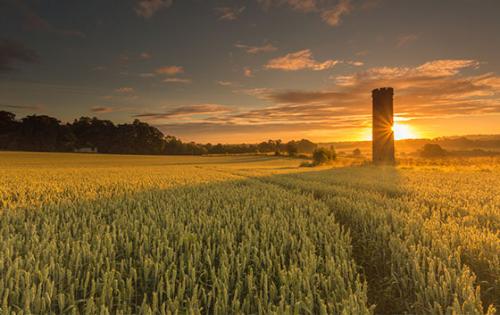
The environmental challenges facing our planet have never been more acute. SEFARI research helps to show how we can protect and restore our natural capital – our soils, biodiversity and ecosystems – and develop effective ways to manage the land and water to improve environmental condition. SEFARI works to better understand how biological, chemical and physical processes can allow us to tackle climate change, adapt to changes coming our way, and build a more resilient and well-functioning environment.
Sector Contact

Case Studies
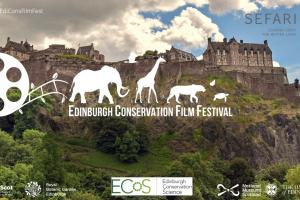
The Edinburgh Conservation Film Festival was founded last year with the aim of raising awareness of the multitude of amazing biodiversity conservation efforts that are taking place around the world, as well as providing a platform to highlight themes relevant for biodiversity conservation. More than anything, we want the festival to convey positive messages of what we can achieve for the benefit of biodiversity conservation and the health and wellbeing of our societies.
In this blog, Simon Dures, the Festival’s Director, tells us more about the festival’s ambitions, this year’s theme of ‘Healthy People, Healthy Planet’, and how you can watch some of the amazing short films – for a limited period only!
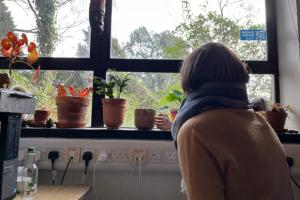
Delivering a sustainable food system is one of the key challenges of our generation and requires ambition to think beyond traditional production models. There is already no doubt we will need to produce our food in a more efficient and environmentally friendly way and my PhD project at the Rowett Institute (University of Aberdeen) is investigating the potential to scale-up production of climate resilient Scottish wild species in three novel agri-systems: forestry, vertical soil-based urban farming and pasture.
My research spans a number of topics, so as part of my PhD experience, and to broaden my understanding, I recently took part in the SEFARI PhD exchange program (funded by SEFARI Gateway) and visited colleagues at the Royal Botanic Garden Edinburgh (RBGE).
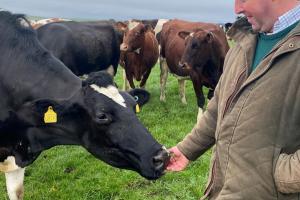
Fineview, a dairy farm managed by the Clark family in Dumfries and Galloway, is part of the innovative First Milk dairy cooperative which aims to deliver healthy fresh milk on sound environmental principles. Why not take a virtual tour and hear how delivering quality milk products needs a nurtured healthy soil, the encouragement of biodiversity, healthy cows and a sustainable farm enterprise.
This virtual tour is one of a series of SEFARI Gateway Innovative Knowledge Exchange funded tours designed to provide you with access to the many research facilities across Scotland whilst also giving you a taste of some of the work we do. Across SEFARI, world leading pioneering research is being undertaken that can really make a difference on the ground.
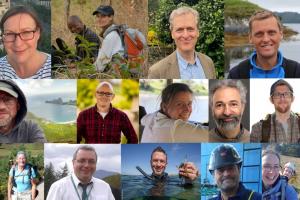
Alexandra Davey introduces a project highlighting the scientists working to combat the biodiversity crisis in Scotland and around the world – from early-career researchers right through to senior scientists. The project gives fascinating insights into their diverse and impactful research, as well as their motivations and inspirations.
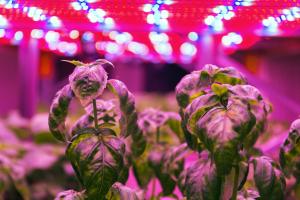
During COP26 the contribution of agriculture and food production to greenhouse gas emissions was discussed and, goals were set to tackle the global challenges of climate change. With COP27 taking place this November, it is becoming increasingly evident and more important than ever that we address sustainable practices on an individual and community level, as well as at the global level.
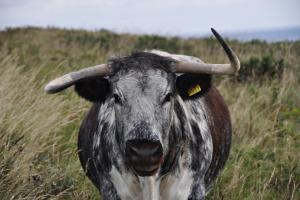
We are pleased to have a guest contribution from Dr Max Coleman, an ecologist and science communicator at Royal Botanic Garden Edinburgh, who is taking a wider look at beef production from an ecological perspective. Max has written this blog post as part of a new, multidisciplinary SEFARI Gateway funded Innovative Knowledge Exchange project aiming to identify the key messages for sustainable livestock production and to communicate these to farming and public audiences. (Image Credit: Longhorn cattle by Michael Golden CC BY 2.0.)
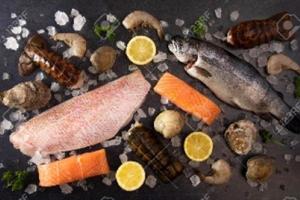
Many of us want to eat a healthier and more sustainable diet and eating more fish is often one option recommended.
However, SEFARI research has identified that, across Europe, dietary recommendations for fish consumption do not necessarily match national seafood supplies.
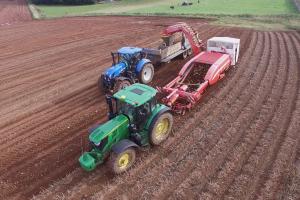
Agriculture and food production contribute a large portion of the greenhouse gas (GHG) emissions, account for approximately 20% of the world's total emissions. In Scotland, the picture is no different, where they contribute around a quarter of the total GHG emissions. Hence, it is important to address the transitions needed in these sectors in order to tackle climate change.
In this blog, Iasmim discusses a number of measures that have been recently proposed, or implemented, to help agriculture and food production to be more sustainable. A transition of practices needs to be just for everyone, and Iasmim considers both the opportunities and challenges ahead for this sector.

In this blog, Dr Kerry Waylen, a senior researcher in the Social, Economic and Geographical Sciences Department at the James Hutton Institute, discusses the practical difficulties in aligning approaches to protect and improve water quality and ecology alongside those for managing flood risk.
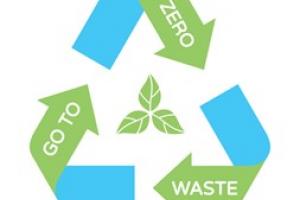
With growing pressures on food resources, agricultural inputs (e.g., energy, soil, water), production costs and the environment, many of us are looking at how we can reduce food wastage whilst still ensuring we get adequate nutrition.
In this blog. Madalina and Marietta - research fellows at the Rowett Institute, discuss work they’ve been doing to establish if broad bean hulls could be reused as food/food ingredients, in a bid to deliver circular nutrition (reusing food waste and providing needed dietary nutrients) as a zero-waste solution. It is hoped such approaches could contribute to a greener economy and a balanced diet simultaneously.
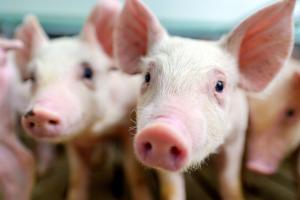
The interconnection between people, animals, and their shared environment has been recognized for over a century and recently, the term ’One Health’ has come to describe this connection.
Here at SEFARI we work on a number of areas relevant to One Health, including our mental wellbeing and livestock wellbeing. Therefore, in this blog, I will explore how we can help our own mental wellbeing before focusing on livestock mental wellbeing, and more specifically on SEFARI research on pig welfare.

The climate crisis is a problem of global significance and not everyone has the privilege of accessing resources, or having their voices heard. This includes those for whom climate change will impact the greatest – future generations, as often the views of experts and policy makers seem to be given preference over those of the youth.
In this blog, we explore some of the contributions that the younger generations have made to the discussions and outcomes of the COP26 climate change conference and its aftermath. Highlighted is the importance of continued youth involvement and the different ways SEFARI is actively involving the younger generations in science.
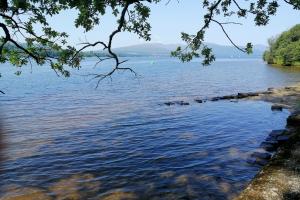
Water is a vital and essential part of our lives, but the impact of climate change is leading to there being too much water in some places and too little in others. This presents challenges that will require sustainable solutions, tailored to not only the issue but also the locality. Consequently, it is important we understand the many and varied benefits of water as a resource, and how we can tackle the issues we face now, and in the future.
Ahead of World Water Day, and as part of other planned activities, we are delighted to announce the publication of a series of educational posters, designed to promote discussion, on four important water topics: ‘The Hydrological Cycle’, ‘Water and Farming in Scotland’, ‘Water and Climate Change in Scotland’ and ‘Water and Global Climate Change’.
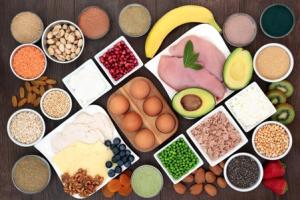
In 2019, a Scottish Health Survey report, commissioned by the Scottish Government, highlighted that two in three adults are classified as overweight or obese (with a body mass index, BMI >25), the highest prevalence since 2003. This is a real concern because obesity, is linked to a range of serious health conditions including diabetes, cardiovascular disease (CVD), hypertension and certain cancers.
In this blog, Professor Alexandra Johnstone outlines recent SEFARI research that has been examining plant-based diets and discusses how, in moving towards a more healthy and sustainable diet, we also need to ensure health inequalities aren’t widened.
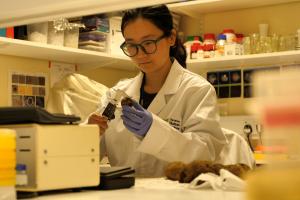
Here at SEFARI, we take pride in our partner institutes and their outstanding achievements in research and informing policy. We firmly believe that inequality in the sustainability sector must be addressed and are committed to using our platforms to showcase and commend remarkable women at all stages of their careers. Read on to celebrate the accomplishments of some of the outstanding SEFARI women.
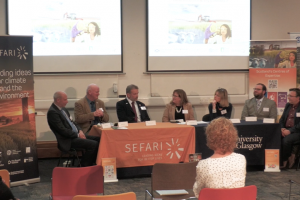
The climate emergency affects every part of our lives and collaboration within and across sectors is therefore key to addressing this crisis. With collaboration at their core, Scotland’s five Centres of Expertise (CoE) work together to connect research with, and respond to, policy needs across issues which affect the climate, water, animal and plant health, land and communities.
In this blog, you can learn more about the work of the CoEs - namely Centre of Expertise for Waters (CREW), ClimateXChange (CXC), Epidemiology, Population health and Infectious disease Control (EPIC), Plant Health Centre (PHC) and SEFARI Gateway - and how during COP26 they came together to host a series of events at the University of Glasgow to showcase how they are helping to protect people and the environment from the effects of climate change.
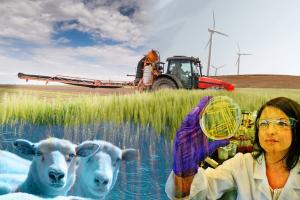
Even though COP26 is now over, there is still a strong focus on initiatives being taken by countries to address climate change. Scotland is committed to reaching net zero by 2045 and to delivering leadership and collaboration within the global response to tackling climate change.
In this blog, Lorna highlights her work in the creation of new resources which outline what is going on across the Centres of Expertise (CoE) to inform and support policy for climate action. Collation of this material from across the Centres was funded by SEFARI Gateway.
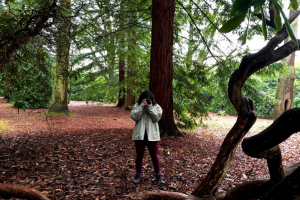
As the recent COP26 Gender Day in Glasgow has highlighted, there is much work to be done in increasing diversity and inclusion in the climate sector. Diverse voices are incredibly important in tackling all aspects of a changing climate, and these voices must be heard and valued. With this and a commitment to achieving a Just Transition to Net Zero in mind, SEFARI have asked me to share my experiences in this blog.
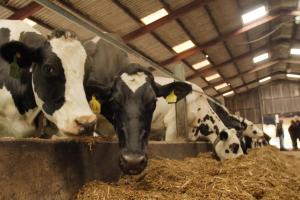
COP26, the United Nations Climate Change conference held in Glasgow, ended on Saturday the 13th of November. Since then, there has been a lot of stock taking as to what was achieved under the Glasgow Climate Pact. Several gains emerged in the first week of the conference, with the announcement of collective action on deforestation, coal, finance and methane. It is the latter of these, the Global Methane Pledge (GMP), which could provide immediate gains to limiting global warming to 1.5 degrees, as embedded in the Paris Agreement. In this blog article, we explain why cutting methane emissions is an imperative and provide examples of how Scottish Government funded science is helping farmers and food consumers reduce their emissions.
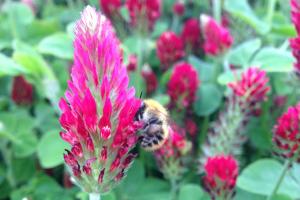
Scotland’s pollinators are a vital part of the country’s biodiversity and crucial for agricultural productivity. Globally, 75% the world’s crops rely on animal pollinators and these crops account for 35% of global food production. In light of the global climate change conference (COP26) and the UN Biodiversity Conference (COP 15) held this year, we should also look at the importance of pollinators for agriculture, and how correctly managed agricultural systems can benefit the environment, rural farmers, and the world’s food supply.
In this blog, we highlight SEFARI research on the positive benefits that pollinators and legume crops have on each other, and how diversifying the agricultural landscape may be the key to pollinator survival and agricultural sustainability.
Pagination
Blog
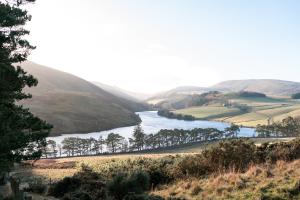
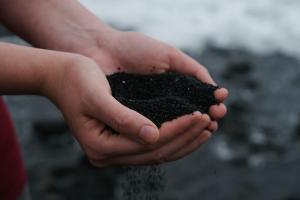
On April 14th, 1935, the largest dust storm in American history occurred. A black cloud carrying 300,000 tons of topsoil from the Great Plains deposited dust as far away as New York.
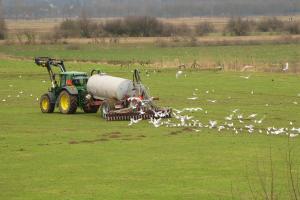
Domestic agriculture provides most of our food consumption and contributes to export revenues and rural livelihoods. At the same time, it is a key sector where management and production changes can reduce pressure on the environment, including air, water, climate and biodiversity.